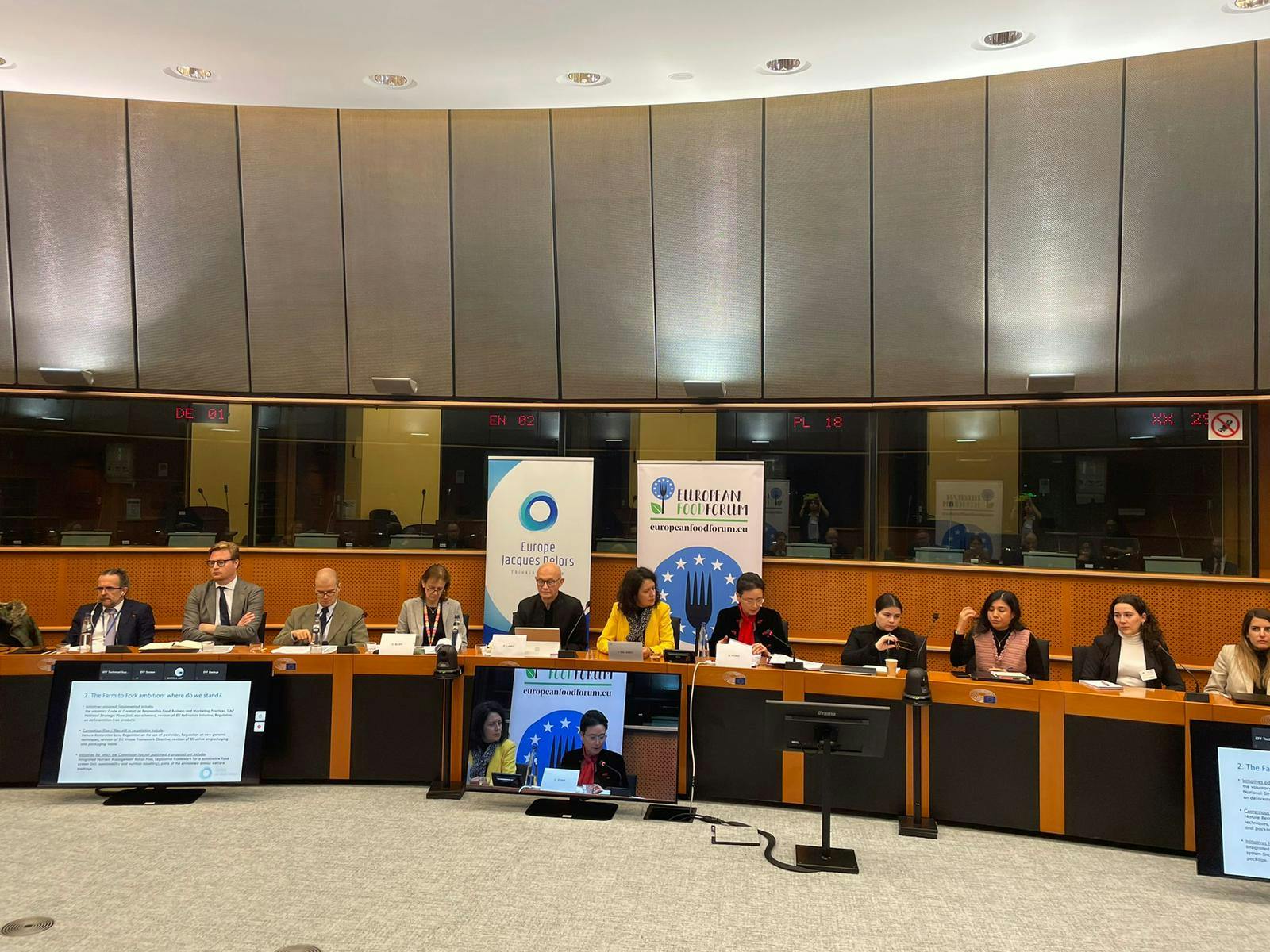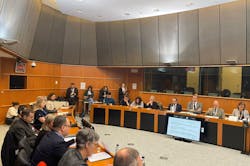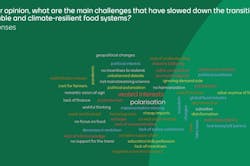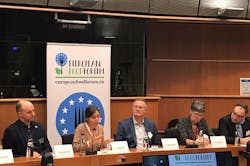Event report: “Taking stock of the Farm to Fork Strategy: Reflecting, Rethinking, Rebuilding”
Four years after the publication of the Farm to Fork Strategy, a cornerstone of the Green Deal, the EU has not managed to move forward on this key legislative file. On the contrary, the topic has been increasingly polarised. Europe Jacques Delors, together with the European Food Forum (EFF), organised the event “Taking stock of the Farm to Fork Strategy: Reflecting, Rethinking, Rebuilding” to evaluate agrifood policies in the EU, ahead of the next European elections.
Stakeholders from along the whole agrifood value chain were invited to reflect on the building blocks of the green transition of the agri-food sector in this discussion opened by Pascal Lamy, Vice-President of Europe Jacques Delors:
Farmers were represented by Rūdolfs Pulkstenis, Vice President, European Council of Young Farmers (CEJA), and Patrick Pagani, Deputy Secretary General and Senior Policy Advisor of Copa-Cogeca. Processors and retailers and the food industry stakeholders were represented by Geert Maesmans, President of EU Specialty Food Ingredients;
Els Bedert, Director Product Policy & Sustainability at EuroCommerce and Silvia Lofrese, Senior Manager Public Affairs at FoodDrinkEurope.
Marta Messa, Director of the European Office at Slow Food Europe represented civil society and Els Bruggeman, Head Advocacy and Enforcement at Euroconsumers, brought the consumer perspective to the debate.
Adam Adamek, Director of Innovation, EIT Food represented the Research and Innovation sector.
Finally, the political perspectives were represented by Irène Tolleret, MEP and Founder of European Food Forum, and Claire Bury, Deputy Director-General at DG Health and Food Safety (European Commission).
Challenging times of polarisation, and crises
The discussion was opened by Geneviève Pons, Director General and Vice-President of Europe Jacques Delors, who underlined the escalating polarisation in the debate over the Farm to Fork strategy and the rise of significant points of contention. Els Bedert acknowledged the “challenging time”, marked by various crises, attributing it as a significant factor hindering the anticipated outcomes of the Farm to Fork strategy. Therefore, Rudolf Pulkstenis underlined some persistent challenges faced by young farmers, including unfair trading practices, difficult long-term access to land and, in a broader way, the lack ot a clear pathway to achieve the give sustainability targets. Limited efforts have been made to support farmers’ adaptation to climate change, soil erodion and biodiversity loss, affecting production, as underlined by Geneviève Pons.
Dialogue, cooperation and affordability: 3 untargeted points of the Farm to Fork strategy
In the current context of farmers’ protests which started in November 2023 across Europe, the need for dialogue with a view to charting a shared direction for the European food system is fully realised. In this regard, Geneviève Pons reminded Jacques Delors’ approach to difficult political negotiations: “When tackling the significant challenges we currently face, particularly in the green transition, he would have adhered to his traditional technique: fostering dialogue”.
Effective dialogue and cooperation among all stakeholders in the chain, as well as civil society inclusion were pointed out by all speakers as crucial elements lacking in the design of the Farm to Fork strategy. Adam Adamek emphasised the importance of collaboration, urging the integration of retailers and consumers, while Els Bedert stressed the need for a better understanding of the agri-food sector, fostering mutual learning among stakeholders. Patrick Pagani underscored positioning farmers as key contributors to the CAP and putting back their “strategic role to provide solutions for food”. Collecting farmers’ demands and initiatives would help avoid the “expression of long frustration” seen in the current context of farmer protests across Europe, according to Rudolf Pulkstenis.
Affordability was another important point of discussion stressed by many speakers. Marta Messa called for systemic change to create an accessible and affordable food environment for consumers, while ensuring decent incomes for farmers. Els Bruggeman emphasised the consumer’s potential to drive the market towards sustainability but stressed the importance of making their choices “easy, affordable, and attractive”. Geert Maesmans noted the industry's struggle with rising raw material costs, impacting the industry’s competitiveness and posing challenges for food producers. Els Bedert highlighted the single market’s critical role in addressing these challenges. Institutional reforms in the next legislative cycle were also mentioned as part of the solution.
Concluding the debate, Claire Bury of the European Commission said that the EU “has had an increasing understanding of what's happening”. She pointed out that the polarisation of the debate has taken its roots from the perceived opposition between economic viability and environmental sustainability. “These are not opposite; we have to see how we can make them work together”. Claire Bury then mentioned a common understanding according to which sustainability has to be a driving force for fair and equitable change. She answered the affordability concerns by calling for public and private green investments. One way to move forward in the next EU cycle would thus be to use "market incentives, and also better lending of public and private financing” to accelerate the uptake of sustainable practices in the agri-food sector.






